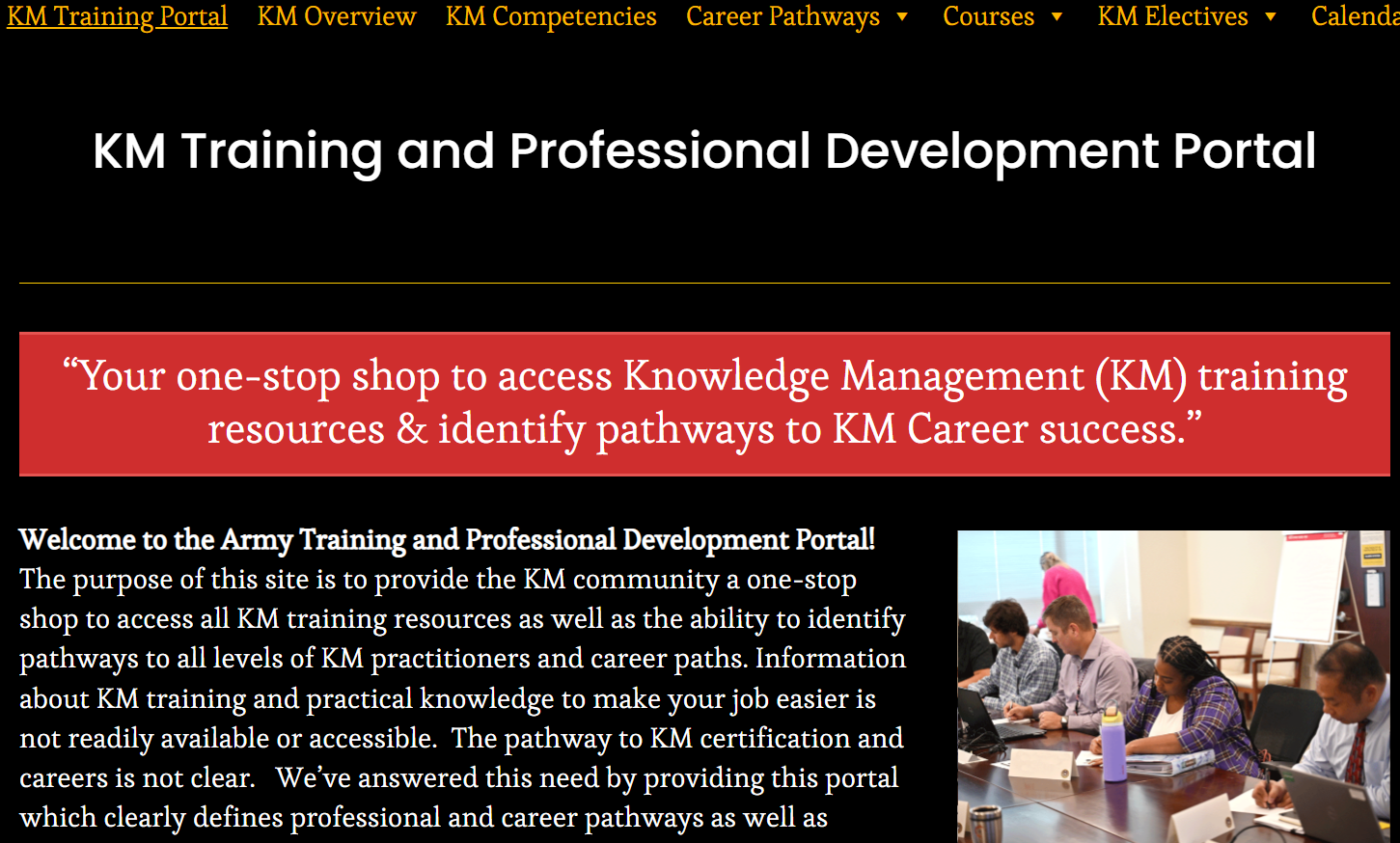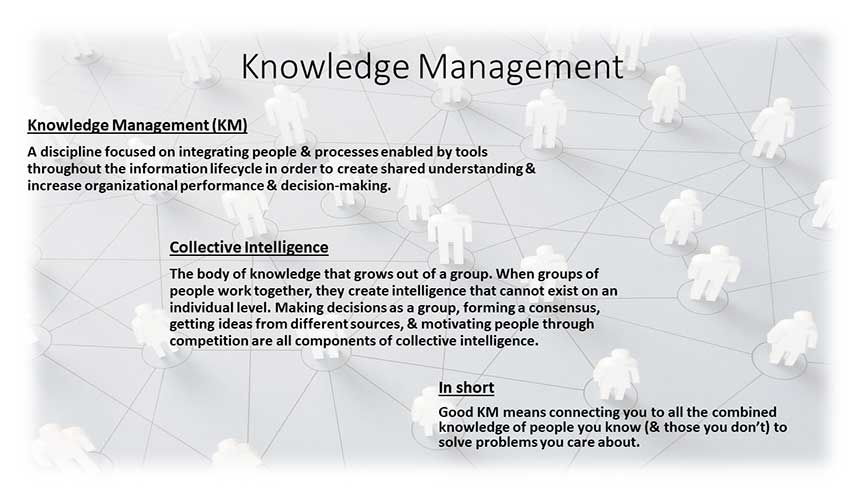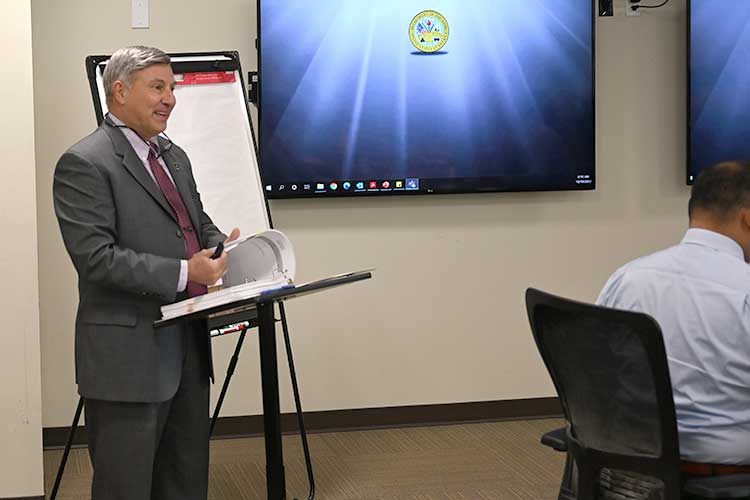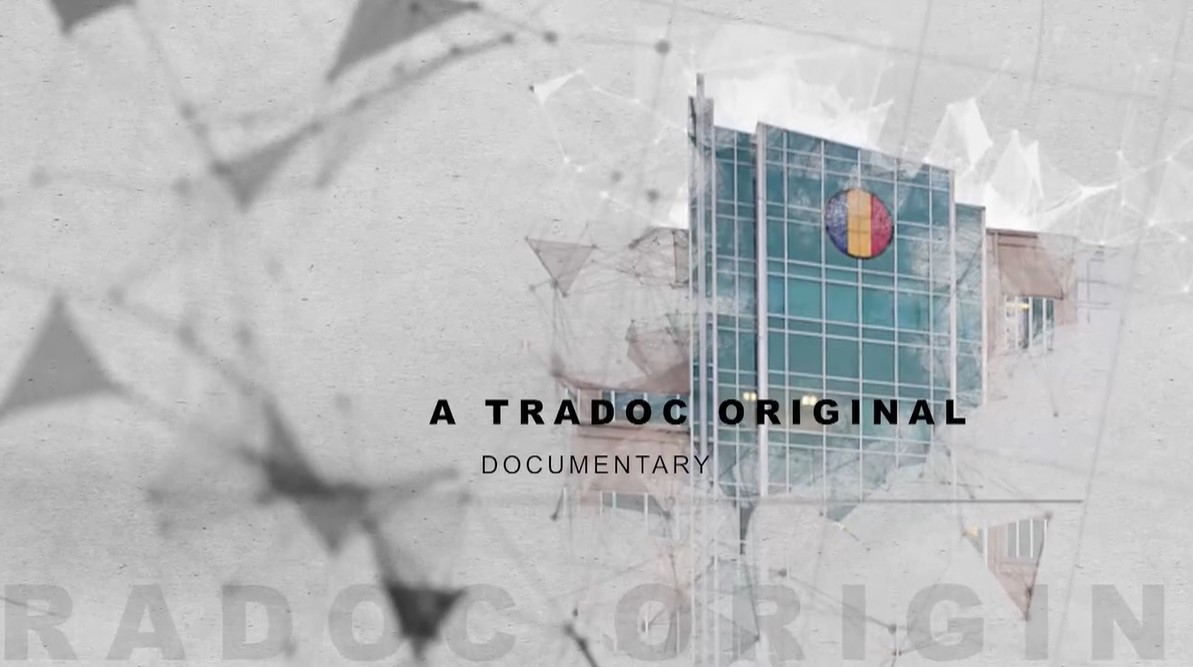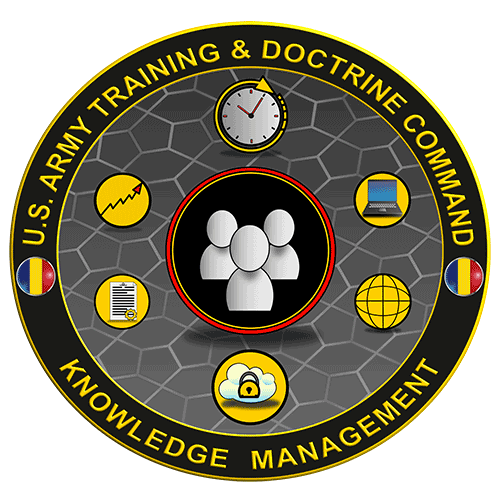
Office of the Chief Knowledge Officer
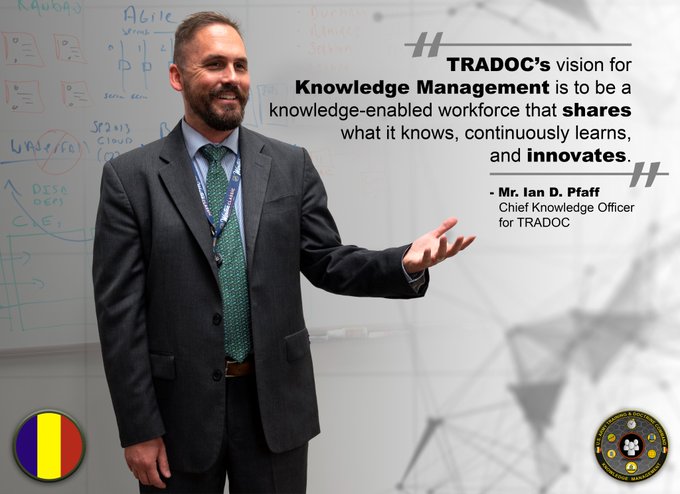
Effective management of TRADOC’s corporate knowledge is vital to the successful future of TRADOC. TRADOC was created in 1973 as a learning organization and our mission has always been to identify, capture, codify, organize, and share knowledge to change the Army’s DOTMLPF-P. With our move to A365, we are achieving an enterprise TRADOC knowledge environment of tightly linked information, resources, and experts that are more easily identifiable and accessible across the enterprise. We are making great strides in our ability to harvest data needed for critical decisions and make it visible to our leaders. And we are building tools and refining business processes to help TRADOC see itself and improve situational understanding. As we hear so often from senior leaders, we must think of data and information as a weapon system and as part of our operational environment. Knowledge Management is our means of managing that environment.
Lead, plan and execute TRADOC organizational knowledge management (KM) program in order to increase collaboration, stimulate innovation, enhance decision-making, and improve organizational performance across the command.
The vision for TRADOC Knowledge Management is “a knowledge-enabled workforce that shares what it knows, continuously learns, and innovates.” Our TRADOC’s KM program will:
- Get the right information, at the right time, to the right people.
- Make knowledge visible and accessible so TRADOC can work smarter and make better and faster decisions.
- Place knowledge where Soldiers/Army Civilian Professionals will “stumble” over it.
- Create a KM structure that recruits, nurtures, and develops KM professionals at all levels of TRADOC.
- Use KM as a means, not an end.
Develop and implement strategies and plans for designing organizational performance measurements and analytics, employing knowledge management and process improvement practices, optimizing data and content management solutions, and training/educating the workforce on how to leverage enterprise KM solutions to achieve TRADOC and Army strategic objectives and priorities. Align TRADOC KM initiatives with the Army Business Strategy, DoD Defense Business Systems (DBS) directives, and other reform initiatives to continually improve organizational processes and performance, and optimize availability of resources to TRADOC in support of Army priorities and warfighting missions.
KM must enable the organization to operate more effectively by harnessing the data and information converting it to actionable knowledge and getting it to the right people in support of these 4 outcomes:
- Improve Decision Cycle Effectiveness
- Enhance Mission & Organizational Performance
- Create Agile Learning Organizations
- Facilitate Shared Understanding Through Collaboration
To accomplish these outcomes, we must establish and sustain Effective KM Programs at all echelons.
- Data Literacy – Pre-Condition for Making Data Driven Decision
- Visualizing Big Data and KM
- Data Analysis and Knowledge Management
- 5 Reasons Why Organizations Assess KM Maturity USACE
- Why KM Maturity Matters (APQC)
- Healthcare Tacit Knowledge
- Innovative KM Technologies in the Financial Sector
- The Impact of Technology on Knowledge Management
- How OCKO Mastered Content Management for Growth
- Unlocking the Potential of Tacit Knowledge
- Starting a CPI Program
- KM and Artificial Intelligence
- The Power of a Knowledge Sharing Culture
- Knowledge Management and Onboarding
- Citizen Integrator and Workflows
- Why Do Annual KM Self-Assessments
- KM Support to Command & Control
- Applying the DMAIC Process to Enhance Knowledge Sharing
- Starting a KM Program
- Becoming a Citizen Integrator
- Kanban & MS Planner
- Everybody Has a Role to Play
- Leader Guide to Managing Change (Must have a CAC to access)
What’s Hot
Importance of Knowledge Management
What is Knowledge Management?
Knowledge Management is About People
Knowledge Management at War
How Change Affects an Organization
Postal Mail
Office of the Chief Knowledge Officer
Building 950, Suite 4061
Attn: ATCS-KO
950 Jefferson Avenue
Ft. Eustis, VA 23604
E-mail: usarmy.jble.tradoc.mbx.hq-tradoc-cko@mail.mil
Prefixes – Commercial: (757) 501-XXXX; DSN 501-XXXX
Extension Specialty Area
6262 Chief Knowledge Officer
6134 Management Analyst (Operations)
6135 Management Analyst (Products and Services)
6260 Management Analyst (Knowledge Management Strategy)
6258 Management Analyst (Training)
KM is a collection of processes, techniques, and technologies to create, organize, apply, and transfer tacit and explicit knowledge, and ensure that knowledge is readily available to those who need it, when and where it’s needed. At the enterprise level, KM is a discipline that promotes an integrated approach to using scalable enterprise technical and non-technical solutions to rapidly share knowledge assets and intellectual capital to meet mission objectives.
CPI is the continuous effort to assess and optimize, organizational business systems and work processes. When implemented successfully, PI ensures the ways in which People work together and the processes they employ operate at best value, improve knowledge flows, and enhance organizational innovation and efficacy. CPI is an application of methods and tools to describe, document, visualize and understand an organizations processes then initiate activities that result in continuous review and improvement of those processes. CPI supports overall KM efforts and is typically supported by change management initiatives that help institutionalize continuous improvements to achieve an organization’s objectives
CM Encompasses the planning, policies, and procedures necessary for efficient and effective use of data, content, and knowledge sources within supporting enterprise architectures, networks, and repositories. CM ensures proper management (from creation to permanent storage or deletion), reduces redundancy/duplication, and enhances discoverability. The content includes images, video, audio, multimedia, and text.
DM is the development, execution, and supervision of plans, policies, programs, and practices that control, protect, deliver, and enhance the value of information assets. These assets may include structured data (databases), unstructured data (documents), policies, procedures — various kinds of explicit knowledge — and previously tacit expertise and experience. Also essential to enhanced data management is the identification and documentation of authoritative data sources.
OPfM comprises the methods by which organizations assess and align their resources, systems, and manpower to effectively and efficiently achieve organizational objectives and command priorities. OPfM unifies efforts through shared understanding and measurable objectives resulting in actionable goals and priorities throughout the organization.
The KM Training Portal includes actions to inform, assess, and provide KM performance support to leaders, professionals, and practitioners through: formal and informal training/education; help-desk type functions; communities of practice and collaboration platforms; strategic communications; professional development settings; and production/distribution of supporting materials (courseware, multimedia; publications, surveys, etc.) in accordance with Army and TRADOC policies, procedures, and standards.
Directory of KM Practitioners across TRADOC (Must have a CAC to access)



